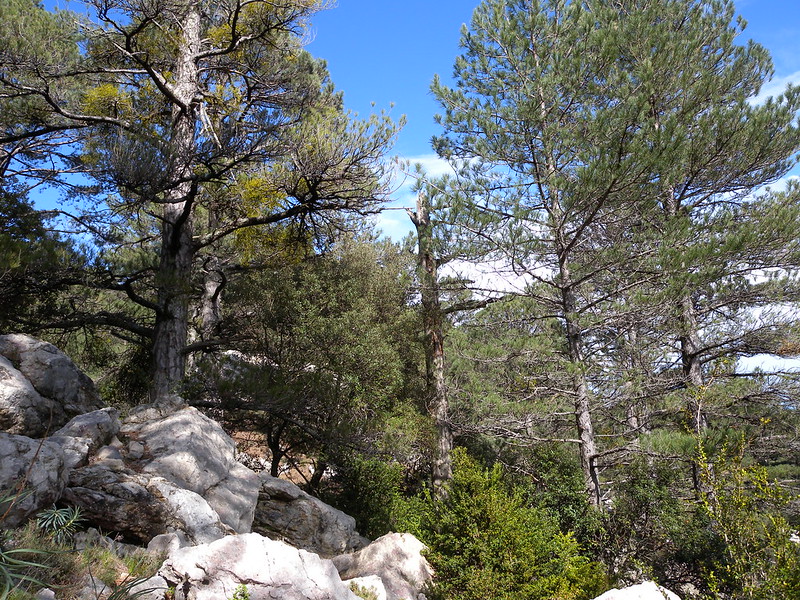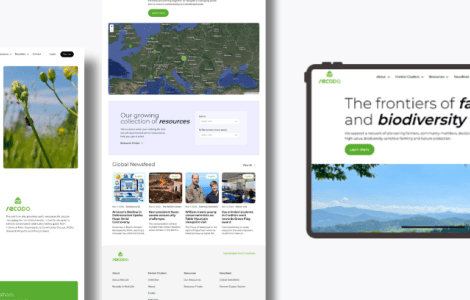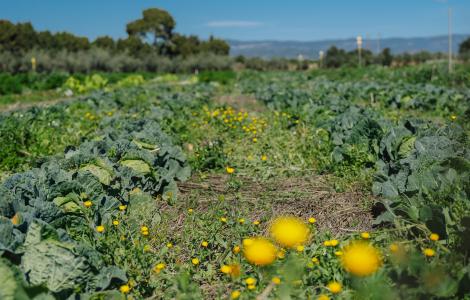CREAF visiting researcher William Anderegg, awarded by the New York Academy of Sciences and the Blavatnik Foundation
The New York Academy of Sciences and the Blavatnik Family Foundation have announced the 3 awarded with the Blavatnik National Awards for Young Scientist 2023, including William Anderegg, researcher at the University of Utah (USA) and visiting scholar on sabbatical at CREAF until June 2023. Professor Anderegg has been distinguished in the field of life sciences and, in particular, for his work on how trees absorb and release carbon dioxide in a context of climate change. For this reason, at CREAF he has collaborated for a year with the team of researchers Jordi Martínez Vilalta and Maurizio Mencuccini, thanks also to the similarity of climatic conditions in the American state of Utah and the Mediterranean region.
William Anderegg's assessment for CREAF highlights the boost the award gives to science and knowledge: "this distinction will allow the research group I lead to carry out some tests and experiments that would not have been possible otherwise, as well as to expand the team". In addition, Anderegg highlights the immense honour of the award and stresses the importance of having the nominations evaluated by an independent jury, made up of some of the most renowned scientists in the United States.

"I hope that our contributions to this field of research can help illuminate the future of Earth’s forests and provide urgently-needed tools to tackle climate change"
WILLIAM ANDEREGG, investigador en període sabàtic del CREAF
To turn around a 40-year-old foundational theory
William Anderegg's scientific work turns around a 40-year-old foundational theory of how tree leaves behave to ameliorate water loss due to drought, and how this plays a role in the forests’ response to climate change. As a leading voice in this field of knowledge, Anderegg's findings are already influencing climate solutions, global policy and public health.
The field of expertise of William Anderegg and his team examines the interaction between climate change and plant ecology, from the cell ladder to forests. Specifically, it addresses how drought and climate change affect the whole system through soil, plant and atmosphere, taking into account tree physiology, species interactions and feedbacks between the biosphere and the atmosphere.
Prof. William Anderegg's findings are already influencing climate solutions, global policy and public health.
The other two recipients of the Blavatnik National Awards for Young Scientist 2023 are inorganic and solid-state chemistry specialist Shannon Boettcher, and applied mathematics expert Svitlana Mayboroda.

Nicholas B. Dirks, President and CEO of the New York Academy of Sciences, highlighted the importance of science in advancing the public good: "This year's laureates are working to address major societal challengesaround energy and sustainability, climate change and wildfires, and the transformation of solid state physics and semiconductor physics, demonstrating the great importance of science in advancing the public good.
Boosting emerging science
The Blavatnik National Award is the largest scientific award in the United States for scientists and engineers under the age of 42. For the 2023 edition, 267 nominations have been received from 134 institutions in 38 US states. The award was established by the Blavatnik Family Foundation in 2007 and administered independently by the New York Academy of Sciences, and in its early days it identified outstanding scientific talent in New York, New Jersey and Connecticut. In 2014, the Blavatnik National Awards were created to recognise scientists in the teaching profession across the United States. In 2017, the awards were extended to include scientists from the United Kingdom and Israel.
The Blavatnik National Award is the largest scientific award in the United States for scientists and engineers under the age of 42.
The New York Academy of Sciences is an independent, non-profit organisation, committed to advancing science for the benefit of society since 1817. With more than 20,000 members in 100 countries, the Academy promotes scientific and technical knowledge, addresses global challenges with science-based solutions, and sponsors a wide variety of educational initiatives at all levels for STEM and STEM-related fields. The Academy organises programmes and publishes content in the physical and life sciences, social sciences, nutrition, artificial intelligence, computer science and sustainability. The Academy also offers professional and educational resources for researchers at all stages of their careers.
Related news

Unveiling Recodo, an online platform to promote biodiversity-sensitive farming through collaboration

A survey is being launched to reflect on Catalonia's priorities in Euro-Mediterranean relations




